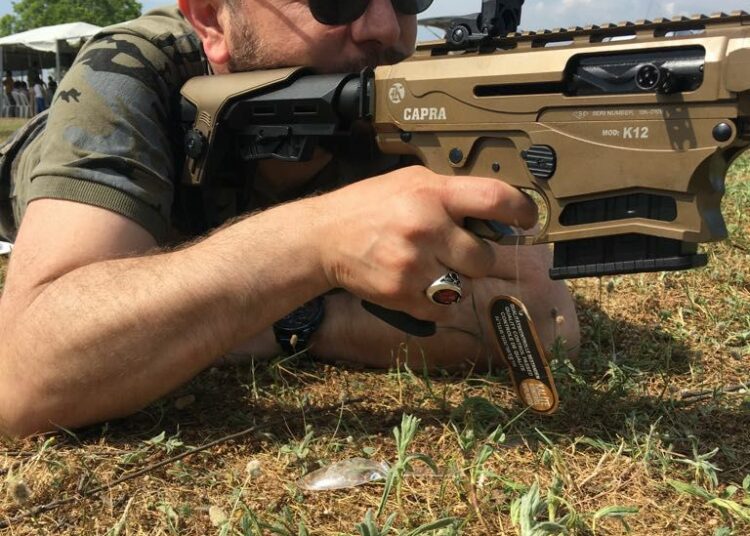Abdullah Bozkurt/Stockholm
A little-known arms manufacturer from a province where Turkish intelligence has been known to secure contracts for purchasing and shipping arms to jihadists in other countries has been flagged in a United Nations’ investigation as an arms smuggler to a client in Libya.
The cargo was originally intended for a consignee in Saint Kitts and Nevis but was diverted to Misrata en route at the request of Capra. During transit, the initial export and loading documentation was modified, and a list of blank firing pistols was omitted from the new documents. Capra did not respond to UN investigators seeking clarification and additional information.
The arms were loaded onto the Belitaki container ship on November 10, 2022 in the Turkish port of Mersin and arrived in Libya’s Misrata on February 2, 2023, following an extended voyage that took the ship to Spain, Colombia and Malta. When the shipment was loaded, Turkish shipper Capra listed a mailbox client located in Saint Kitts and Nevis, an island state in the eastern Caribbean. However, the destination was changed in the course of the container’s transshipment.
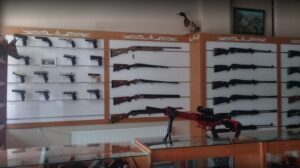
The waybill for the consignment was entirely in Turkish and did not adequately identify the pistols, creating ambiguity for customs officials in identifying the cargo. The modified waybill only listed 148 boxes of kitchenware, completely omitting any mention of pistols. Additionally, the Turkish company’s full name, which originally included a reference to arms, was also dropped from the new waybill. These changes appear to have been deliberately made to avoid raising red flags for the cargo during transport and in customs declarations.
Capra needed a Turkish government export license for the shipment and obtained it by involving a shell company registered in Saint Kitts and Nevis at a mailbox address. Consequently, the Turkish government could save face by claiming that it bore no responsibility for any changes in the destination during the arms shipment. This occurred even though the arms violated UN Security Council Resolution 1970 (2011).
There isn’t much information available about Capra in the Turkish arms industry. Launched in 2018 in Turkey’s conservative province of Konya, a stronghold of the ruling Justice and Development Party (AKP), Capra is relatively unknown. Notably, Turkish intelligence agency MIT has previously contracted certain arms manufacturers in the same province to produce weapons, artillery and missiles for jihadists in Syria.
Trade registry filing in 2018 for the establishment of Capra:
The circumstances surrounding Capra’s arms transfers to Libya, including the use of a recently established company, the initial destination outside of Libya, registering pistols as blank firing guns in the local language to avoid raising alarms during inspections and later omitting the mention of pistols in a revised waybill, indeed suggest a modus operandi similar to that of MIT. These tactics comport with previous patterns observed in covert operations linked to Turkish intelligence.
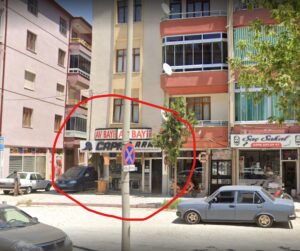
According to trade registry records, the company was established on July 10, 2018 as a limited corporation in Konya by a single owner, Mümin Özet, a resident of the industrial city of Gebze in the northeastern part of Turkey. The company’s bylaws specified as its activities the manufacturing of arms, defense materiel and explosives and engagement in their sale, export and import. The declared capital for the establishment of the company was 100,000 Turkish lira.
Özet transferred 5 percent of the shares in the company to a man named Yunus Zırıp 10 days after its establishment and appointed him general manager. Subsequently, on September 1, 2021, both Özet and Zirip sold their shares to Ömer Faruk Kurt, making him the sole owner of the company
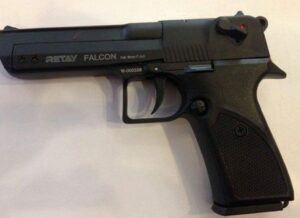
Özet has another store, Kurt Av Dünyası, in Gebze that functions as a retailer for arms, specializing in hunting rifles, on behalf of arms manufacturers and defense contractors, listed as an authorized distributor for Turkish defense contractor Güral Savunma Sanayi.
It seems that Capra does not operate its own manufacturing facility but rather outsources production to other companies, marketing arms under its own brand or selling and distributing other brands. The pistols sent to Libya by Capra were manufactured by arms producer Retay Silah Ltd. Şti., also located in Konya, under the Retay Falcon brand.
The government of Turkey, led by President Recep Tayyip Erdogan, has displayed a significant interest in Libya, a nation marked by civil war and division since the Arab revolutions of 2011. With the financial support of Qatar, Turkey has been actively involved in arming, training and supporting factions aligned with the Erdogan government in Libya.
The Erdogan government has gone to the extent of transferring Syrian fighters to Libya as mercenaries, providing them with monthly salaries and promising Turkish citizenship for both the fighters and their family members. The vetting and selection process for these fighters was conducted by Turkish intelligence agency MIT, which had been collaborating with jihadist groups in Syria since 2011 with the goal of ousting President Bashar al-Assad.
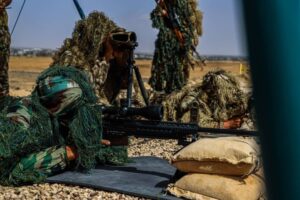
According to UN investigators, Turkish-backed Syrian fighters have been consistently present in various military camps of the Government of National Unity’s armed forces in the Tripoli region. A contingent of at least 300 Syrian fighters associated with the Syrian rebel group Sultan Suleiman Shah has been reported at the Sidi Bilal military camp, where regular trainings have taken place.
President Erdogan and his family have benefited financially from both military and non-military deals with Libyan factions supported by Turkey. The Turkish defense industry is believed to be significantly influenced by Erdogan, his family members and his business associates.
The Turkish Armed Forces (TSK) have deployed senior officers to Libya and initiated training programs for the Government of National Unity’s armed forces, in both Turkey and Libya. UN investigators claim that a significant portion of the training provided to Libyan troops by Turkey violates the UN arms embargo on Libya.
Full text of the UN Libya report:
Turkish military cargo planes and navy frigates continue to make trips to Libya to transport arms, logistical materials and personnel. Some of the major arms transferred to Libya include Bayraktar TB2 armed drones, 35mm Korkut Cannon for air defense, MIM-3 Hawk missiles, 155mm Firtina T155 artillery, Rocketsan 122mm Sakarya T-122 artillery cannon, the Aselsan Koral Electronic Warfare System, the Aselsan Ihasavar UAV Jammer, an M-60 Patton tank and Aselsan Serce-2 UAVs, STM Kargu-2 UAVs and Tai Anka UAVs as well as various arms such as sniper rifles, rockets and anti-tank weapons.
Despite travel bans and asset seizure orders imposed by the UN Libya sanctions committee, some individuals sanctioned by the UN have managed to travel to Turkey and establish residence there.
Between July 2022 and July 2023, UN investigators sent 18 letters to Turkey — second only to Libya in the number of notifications from UN investigators — seeking clarification on violations of Libya sanctions. The Erdogan government responded to only four of them, ignoring the remainder.


